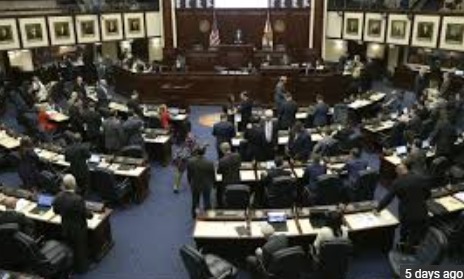I have not done any political posts in my previous 12 years of posting. Not really one of my interests. But in this election year of 2020, I am drawn to study the topic of how people choose to select the next president. I will do this by studying the qualities of the past 10 presidents (not political issues).

Organizational Abilities
A president’s capacity as an organizer includes his ability to build a team and minimizing the tendency of subordinates to tell their boss what they sense he wants to hear. Veterans of the Truman, Eisenhower, Kennedy, Ford, and George H. W. Bush presidencies have nothing but praise for their erstwhile chiefs. In contrast, few Johnson, Carter, and Clinton lieutenants emerged from their White House service with unmixed views of the president they served.
Presidents also differ in their ability to avail themselves of a rich and varied fare of advice and information. FDR encouraged diversity in the recommendations that reached him by pitting his assistants against one another. Kennedy’s method was to charge his brother Robert and his alter ego Theodore Sorensen with scrutinizing the proposals of his other advisers for flaws and pitfalls.
The modern president with by far the greatest and most demanding organizational experience was Eisenhower, who had a highly developed view of the matter. “I know of only one way in which you can be sure you have done your best to make a wise decision,” he declared in a 1967 interview.
Good Brain
The President must be a simplifier. Reagan is rightly criticized when he oversimplifies, which is often, but some of his simplifying are just right, not unlike good teaching or preaching.

In abstract intelligence, it could be that L.B.J., Nixon, and Carter would rate highest among the modern Presidents. All suffered from a lack of judgment and proportion, which does not show up in IQ tests.
A President needs a sense of history, including a feel for the situations where history does not apply. Jimmy Carter, despite his speed-reading studiousness and remarkable memory, was strangely deficient here.
A President must offer the country vision, and he must animate his Administration with purposes larger than the enjoyment of office. A visible zest for the job is perfectly legal, even desirable.
A President needs an ever-fresh curiosity about his big and complicated country. He can help overcome his isolation by seeking and taking advice from a broad circle. But many otherwise courageous people will simply not talk candidly to a President. He may be a very courteous listener, as Carter was, and still be incapable of any real exchange except with a very few intimates. Reagan is more open as a personality but not notably open to “new” facts.
Political Perspectives
Lyndon Johnson seemed almost to have taken his methods from the pages of Presidential Power. Within hours after Kennedy’s assassination, Johnson had begun to muster support for major domestic policy departures. He exhibited will as well as skill, cultivating his political reputation by keeping Congress in session until Christmas 1963 in order to prevail in one of his administration’s first legislative contests.
His actions won him strong public support, making it apparent to his opposite numbers on Capitol Hill that it would be politically costly to ignore his demands.
Character and Temperament
The presidential bedrock must be integrity, perceived, and real. (Integrity includes an honorable private life.) There is an unavoidable tension between this necessity and the political necessities of maneuver, indirection, and calculated ambiguity. Of the two masterly political operators among the modern Presidents, F.D.R. was frequently dancing along the ethical borderline, and L.B.J. was often well across it.
The President needs perseverance and personal ambition within healthy limits. A fashionable cynicism is that anybody so ambitious that he would put up with what it takes to get nominated and elected is morally disqualified for the presidency.
Having a Vision
“Vision” is a term with many connotations. One is the capacity to inspire. In this, the rhetorically gifted presidents — Kennedy, Reagan, and above all FDR — excelled. In the narrower meaning employed here, “vision” refers to preoccupation with the content of policies, and the ability to assess their feasibility and the possession of a set of overarching goals.

Here the standouts are Eisenhower, Nixon, and to a lesser extent Ronald Reagan, whose views were poorly grounded in specifics. Vision also encompasses the consistency of viewpoint. Presidents who stand firm are able to set the terms of policy discourse. In effect, they serve as anchors for the rest of the political community.
George H. W. Bush was not alone in lacking “the vision thing.” He falls in a class of presidential pragmatists that includes the bulk of the modern chief executives.
| The Body We prefer Presidents to look like Presidents. F.D.R. did (supremely so), also Ike, J.F.K., Reagan. Other recent incumbents, through no fault of their own, didn’t. |